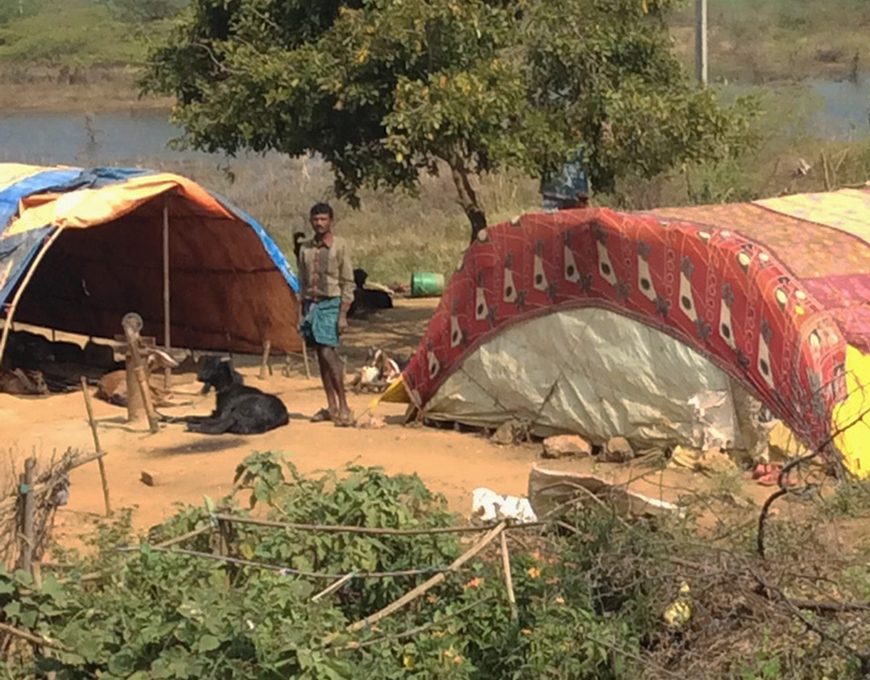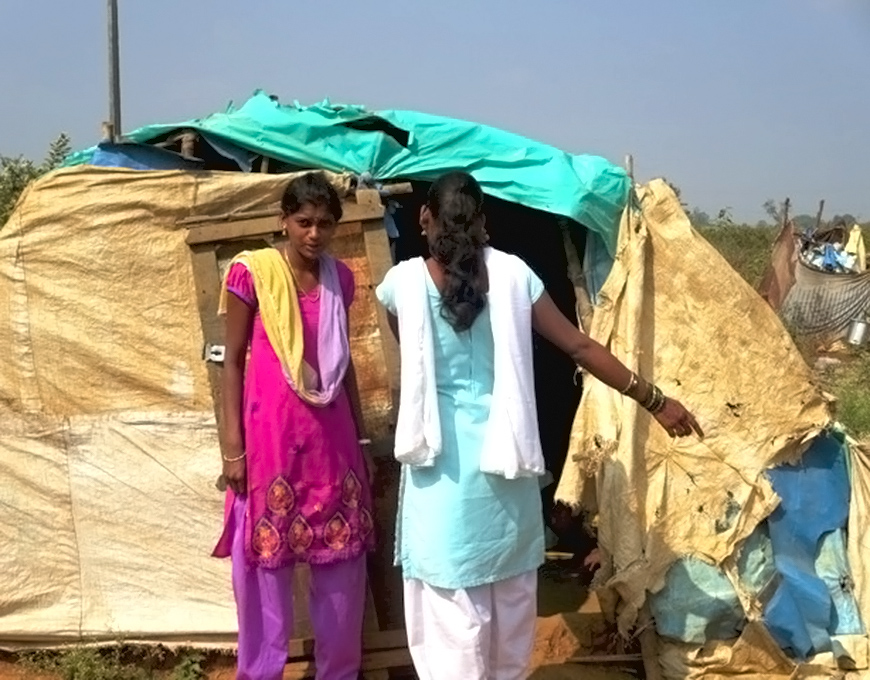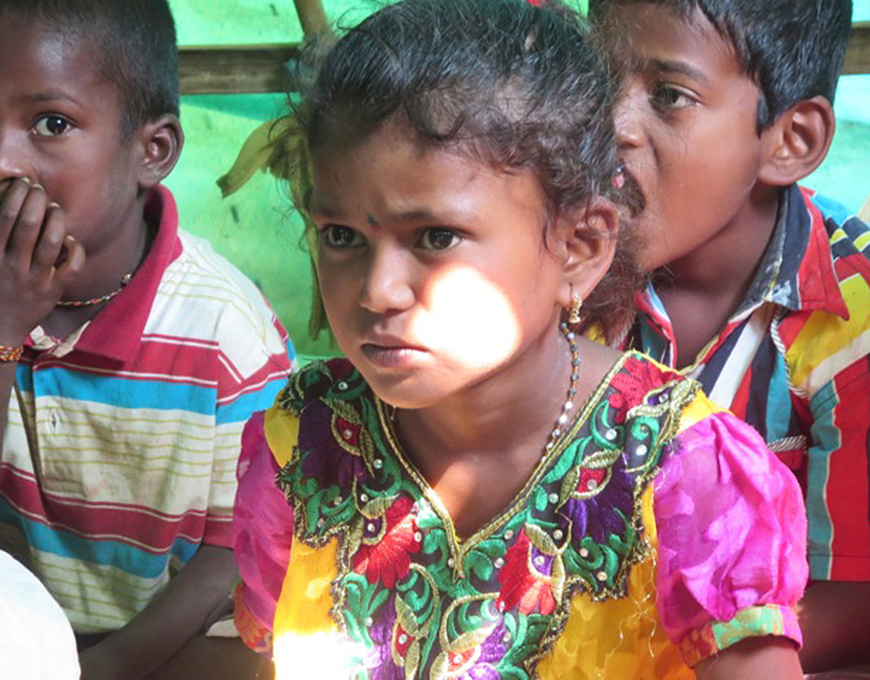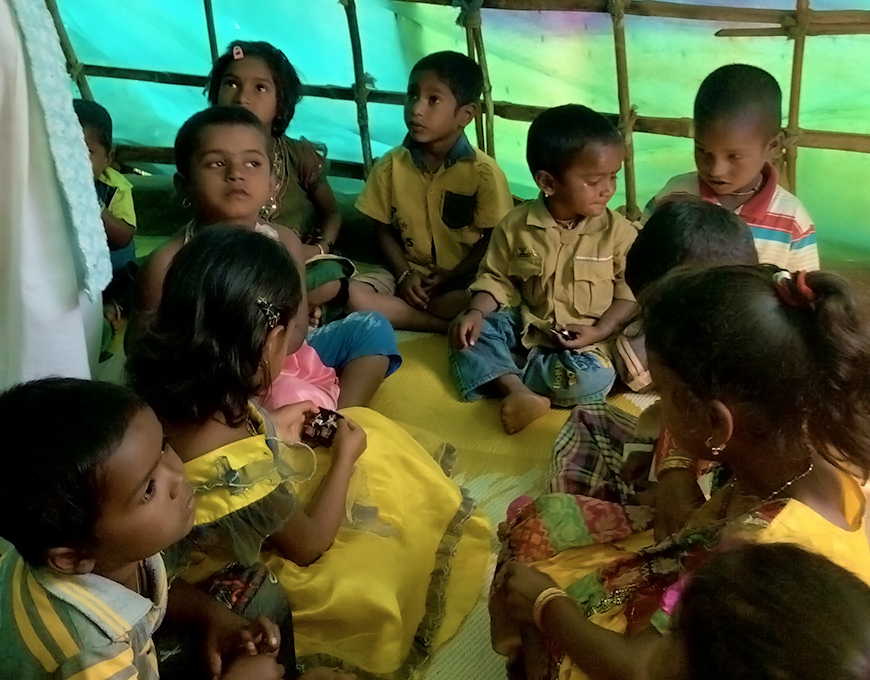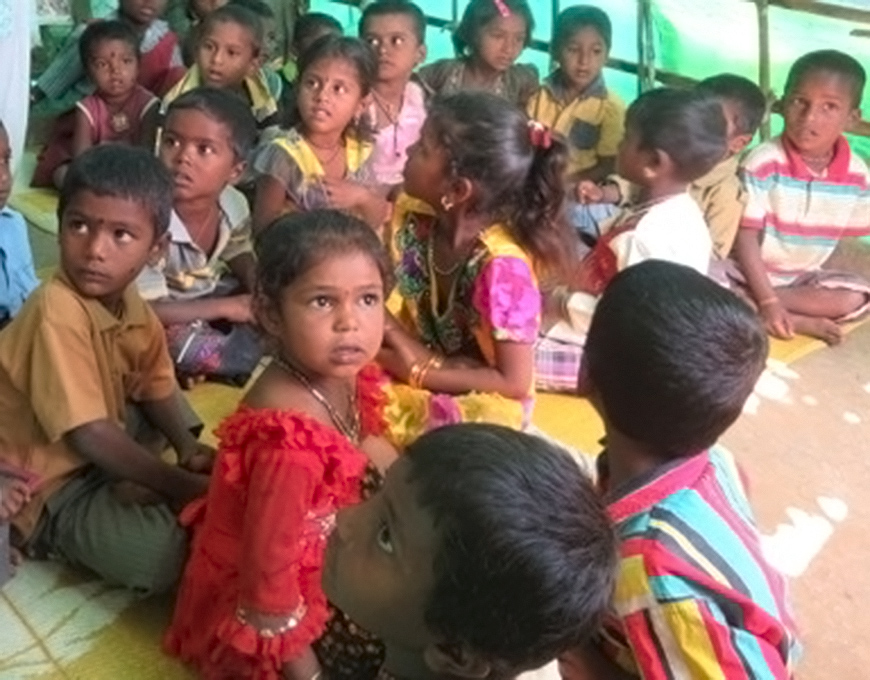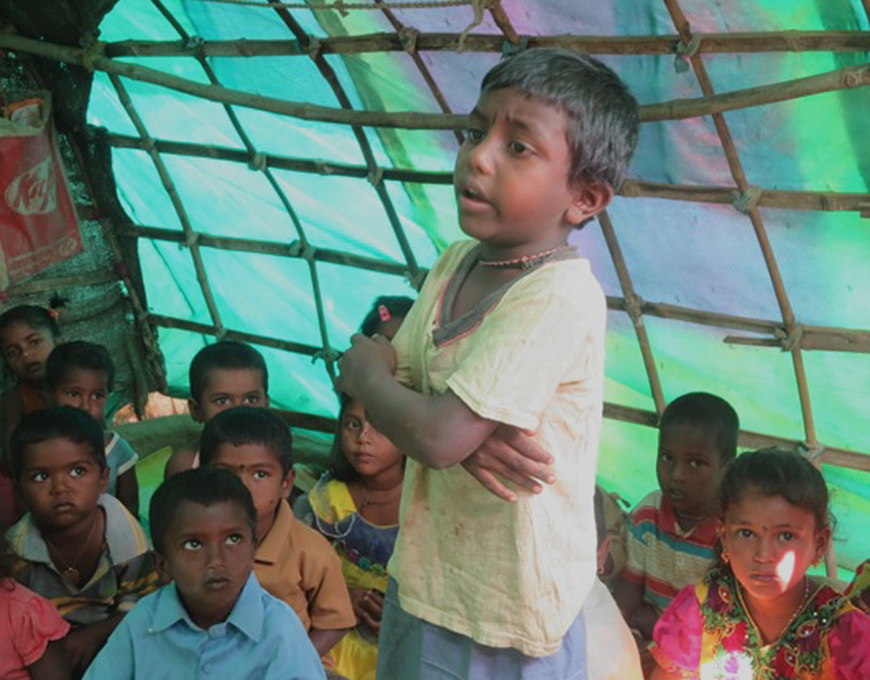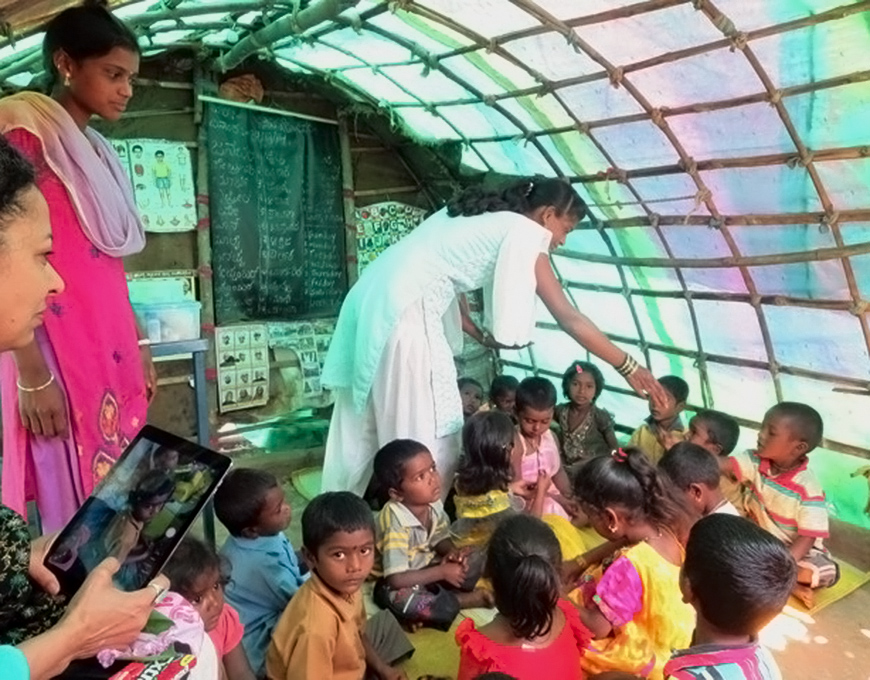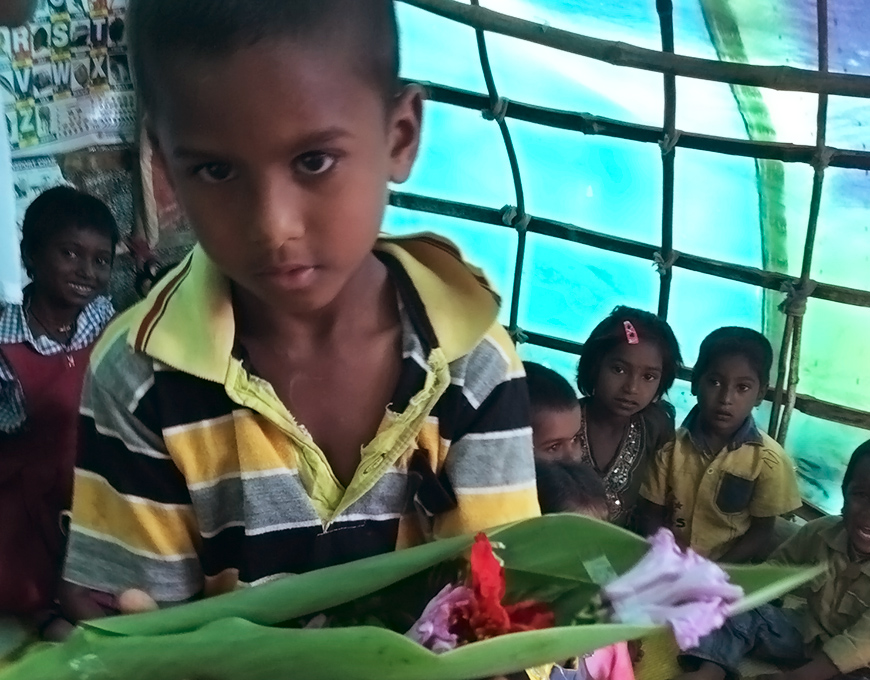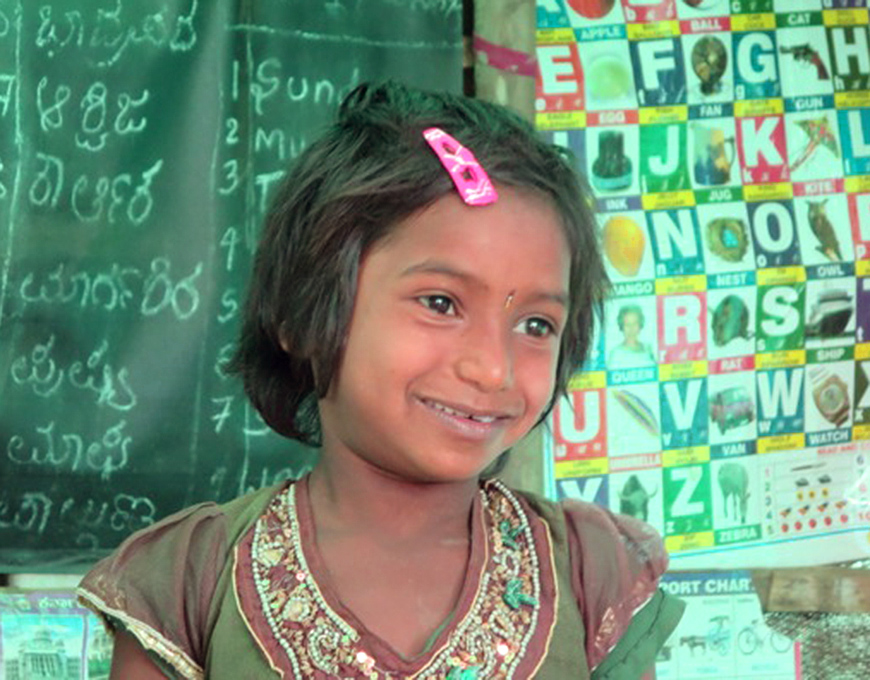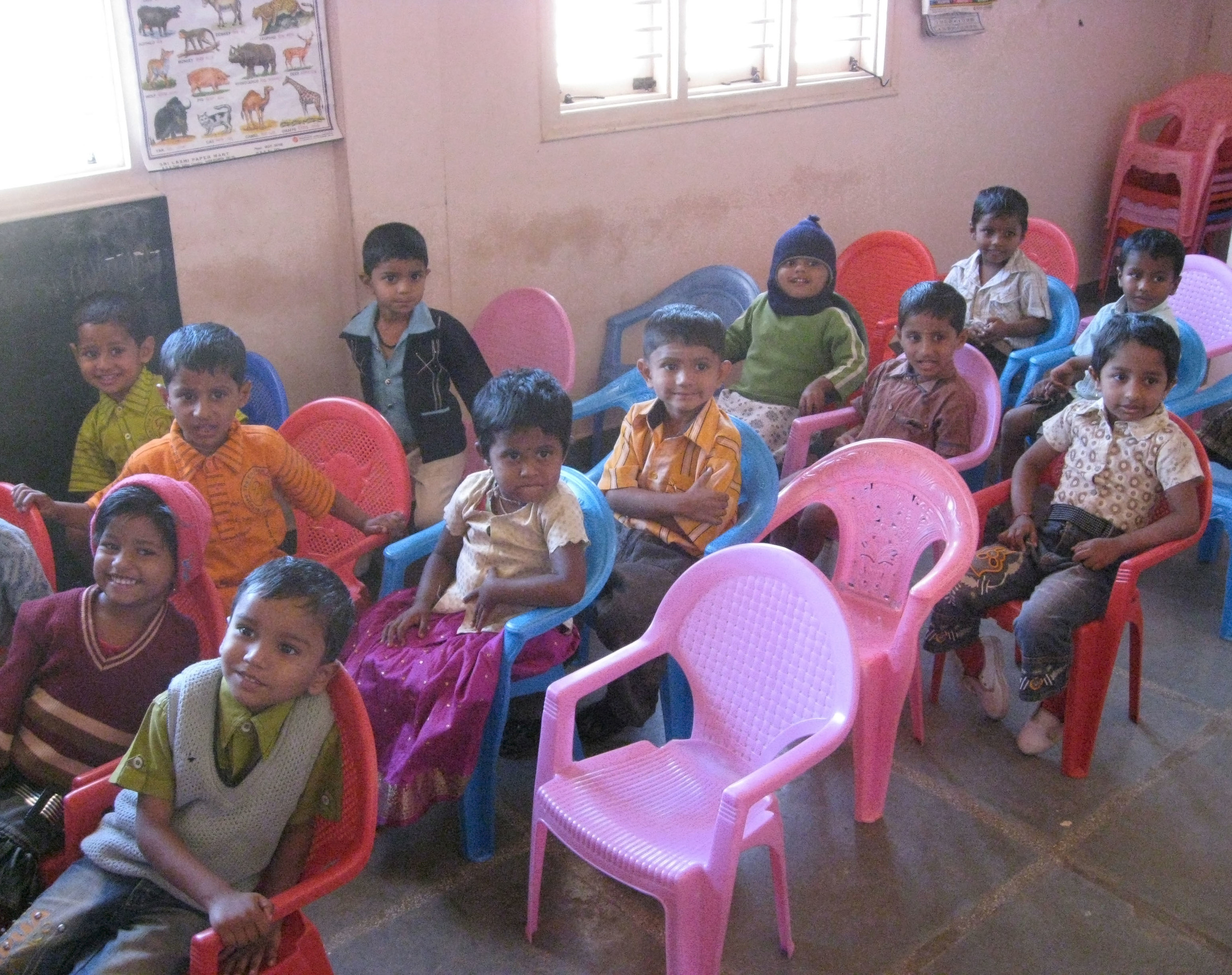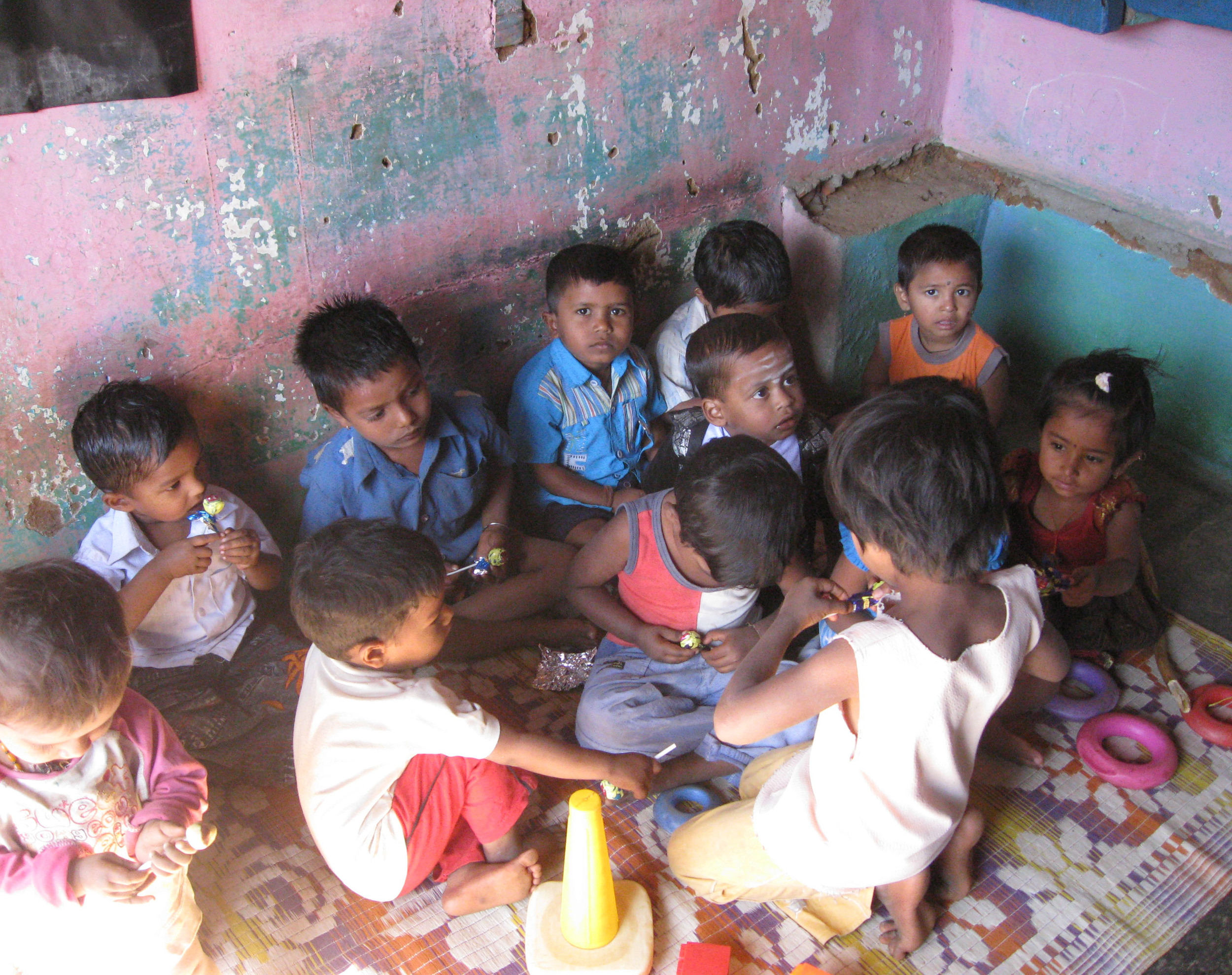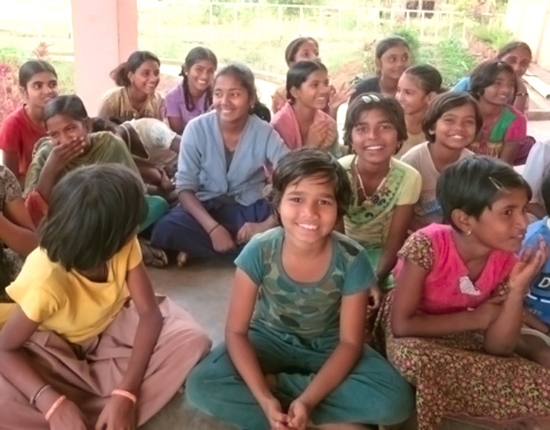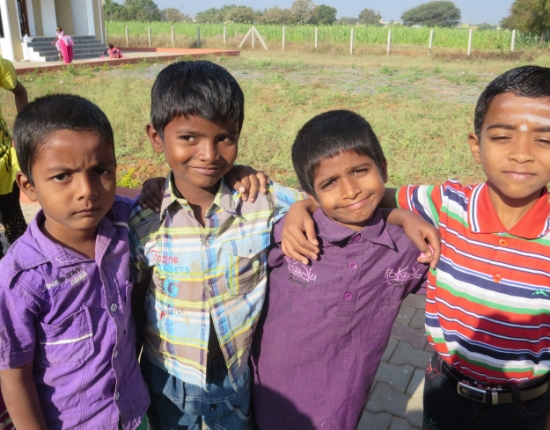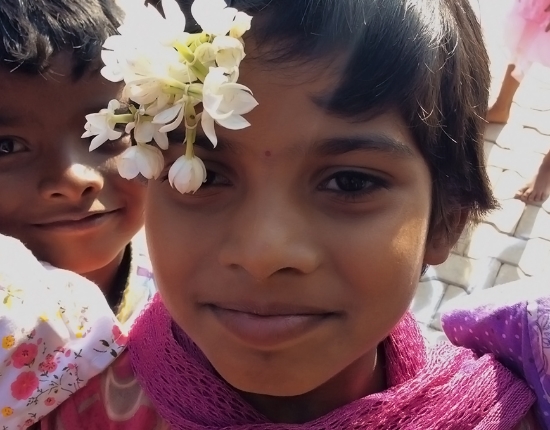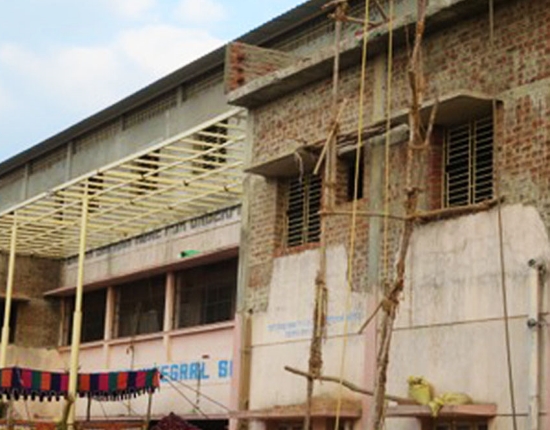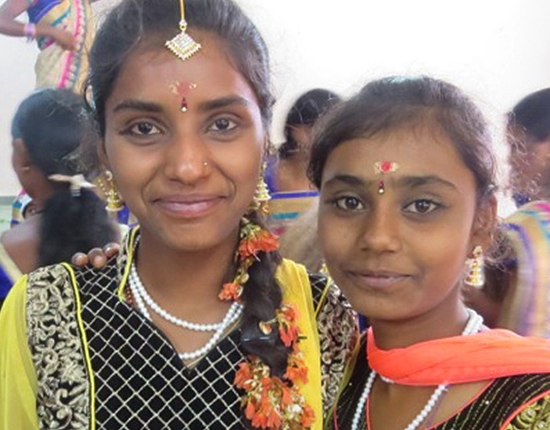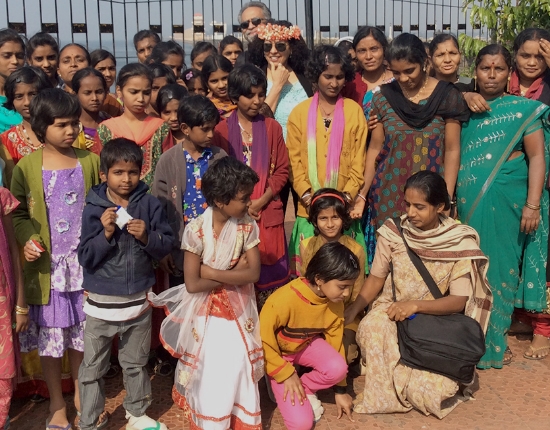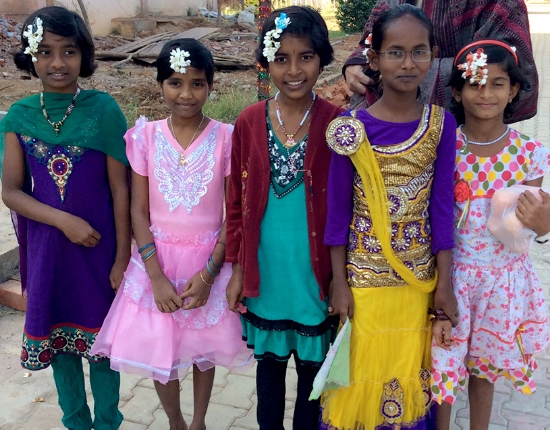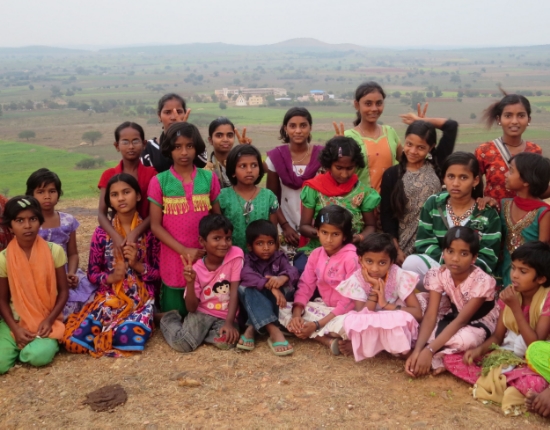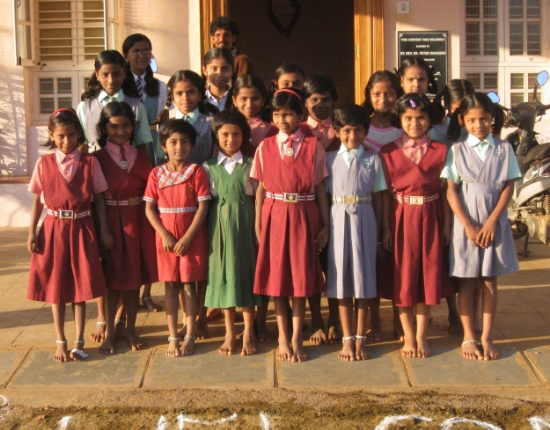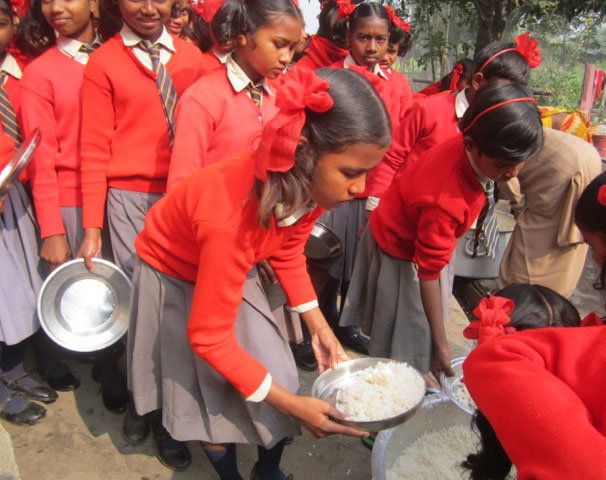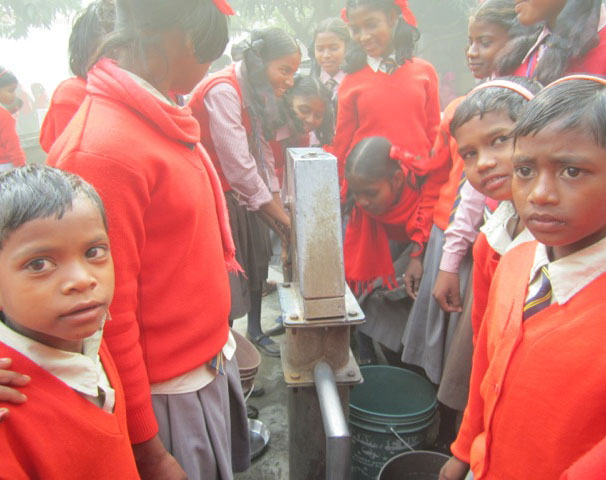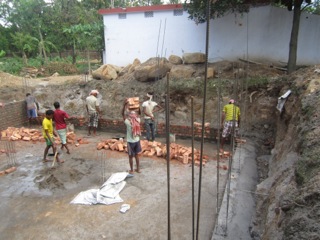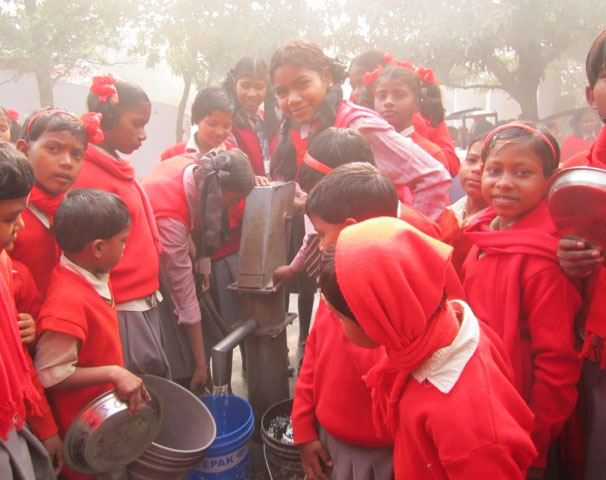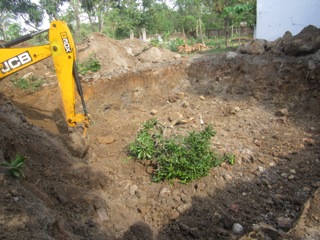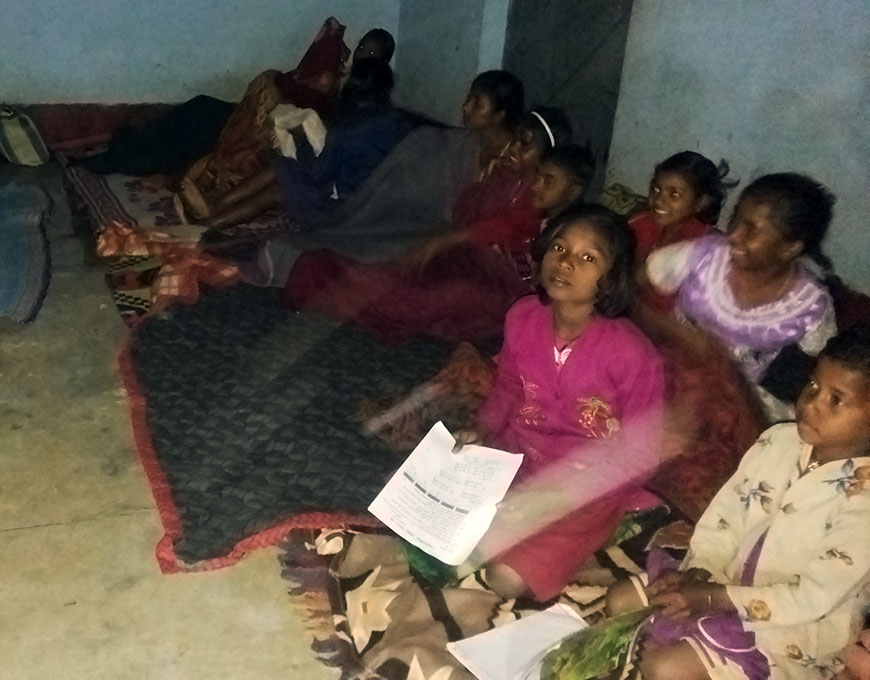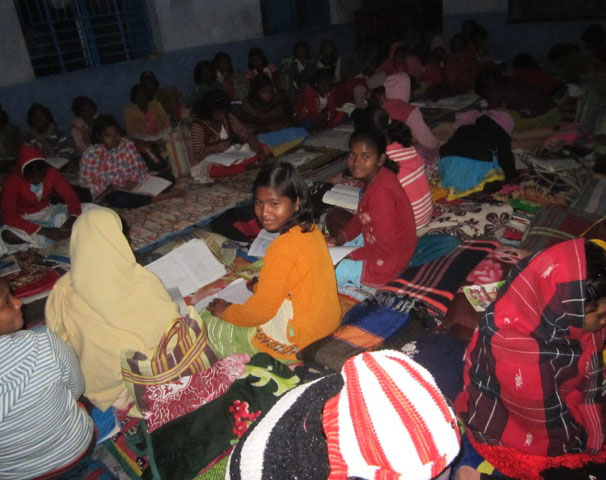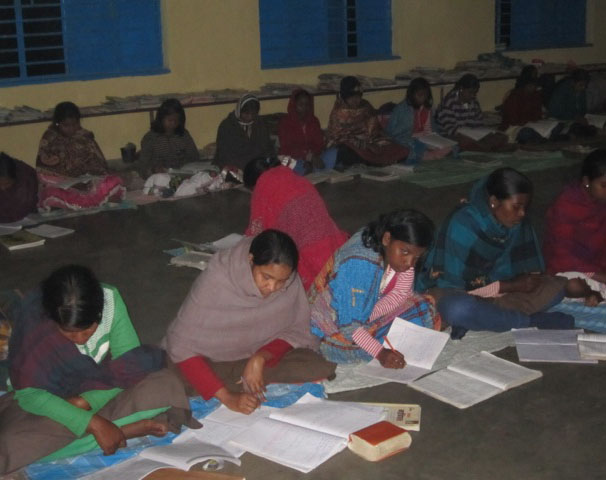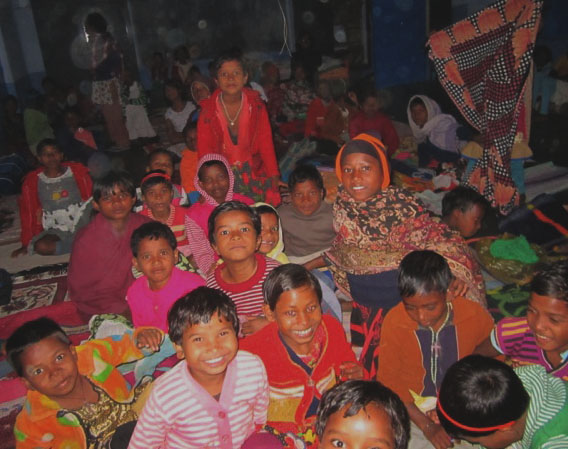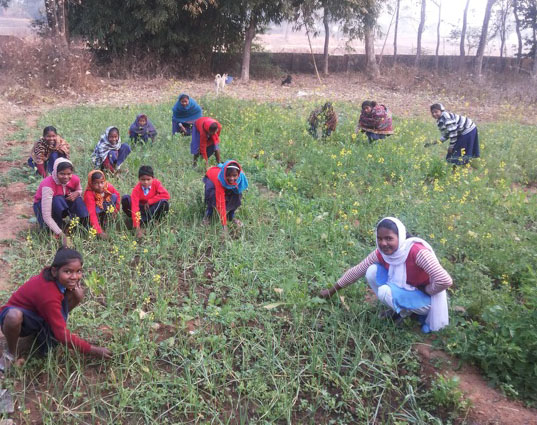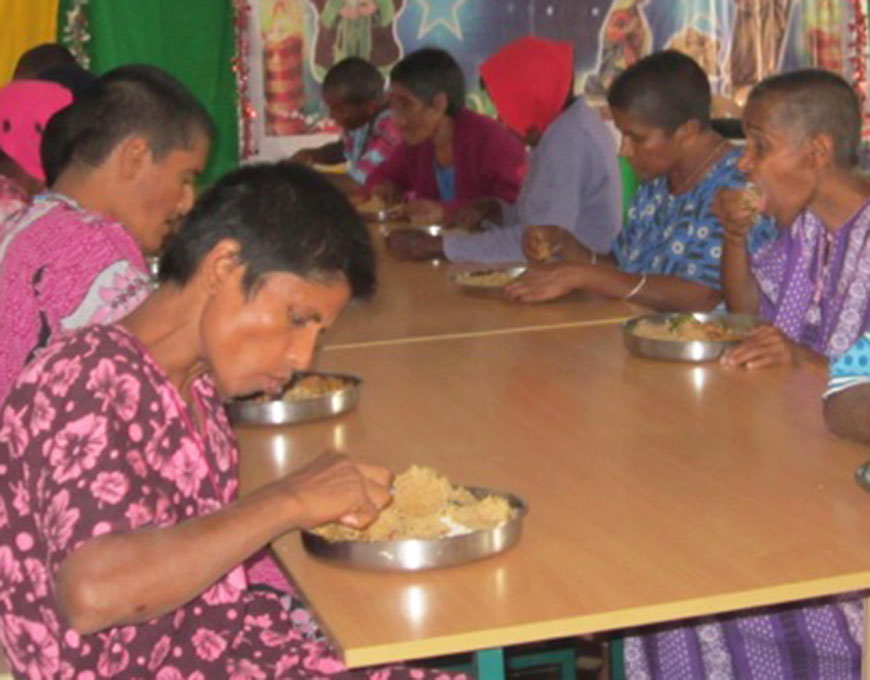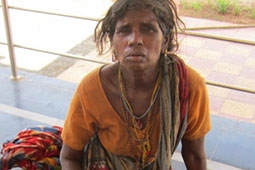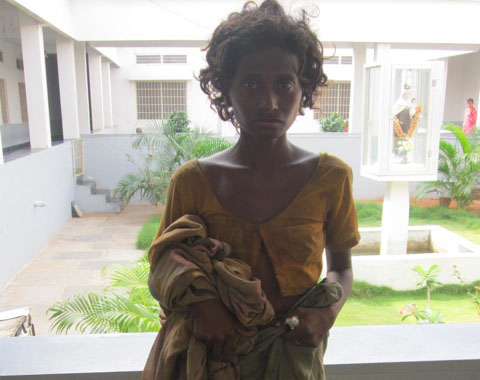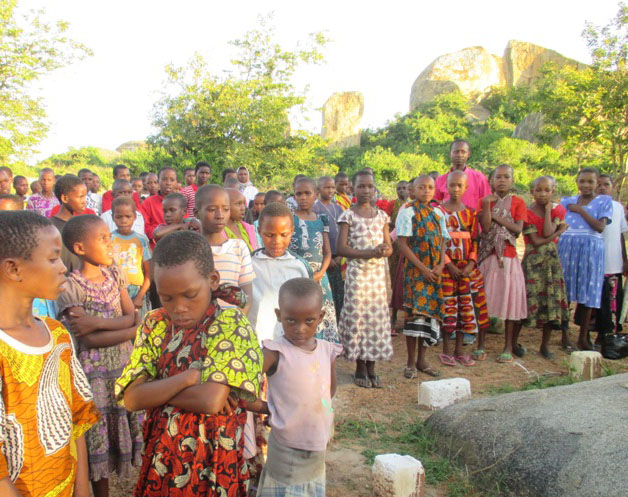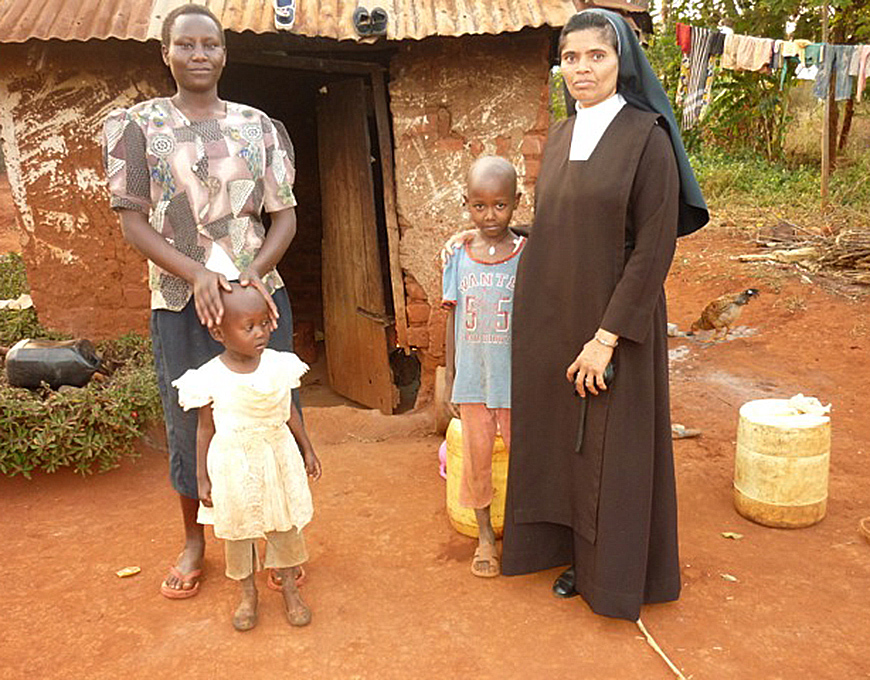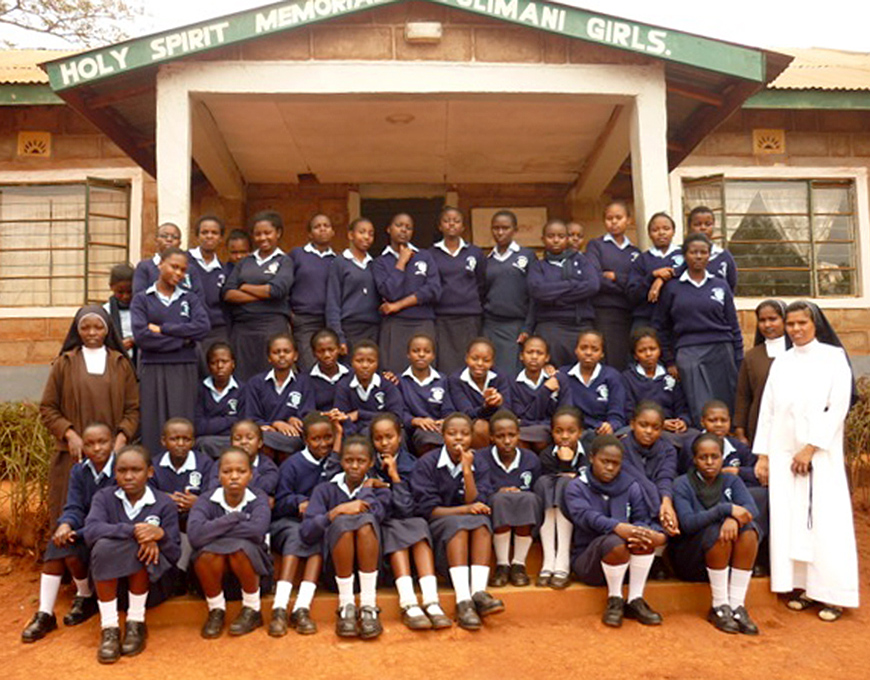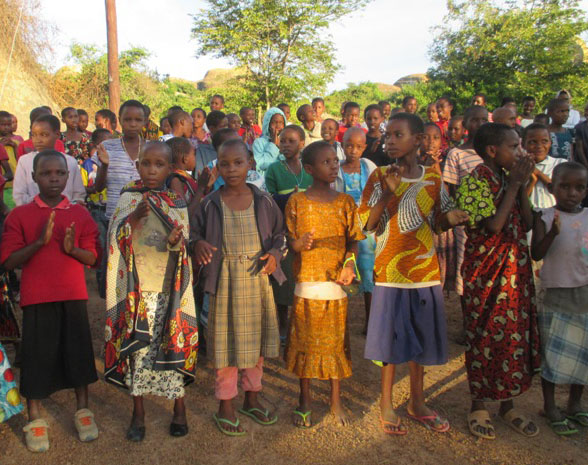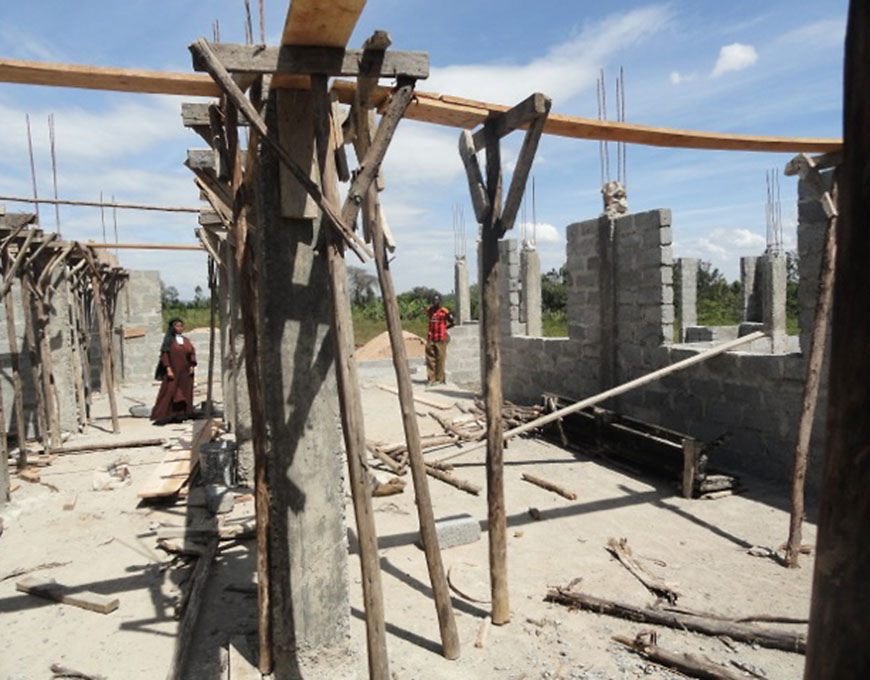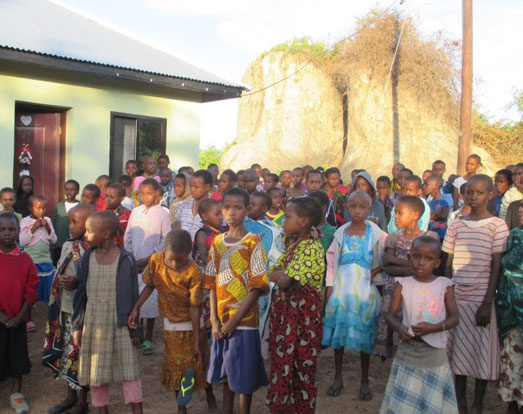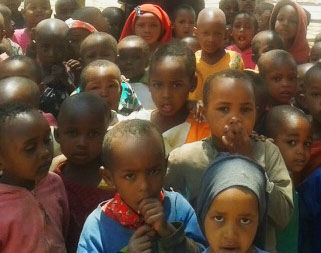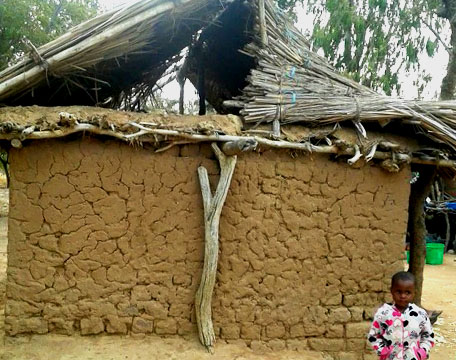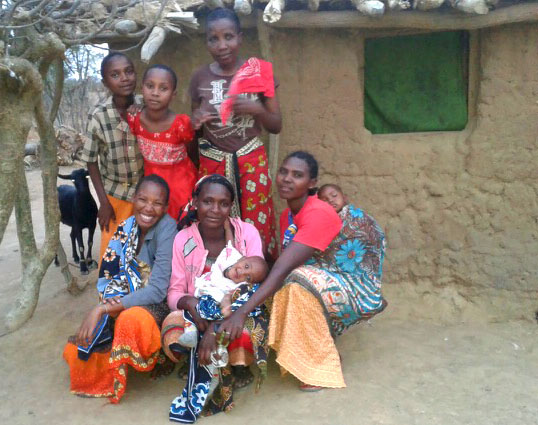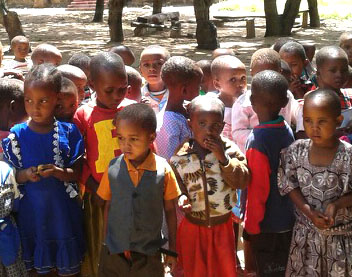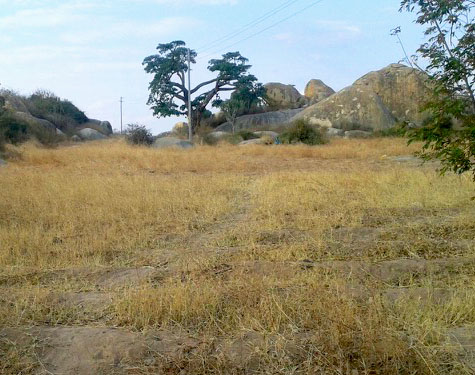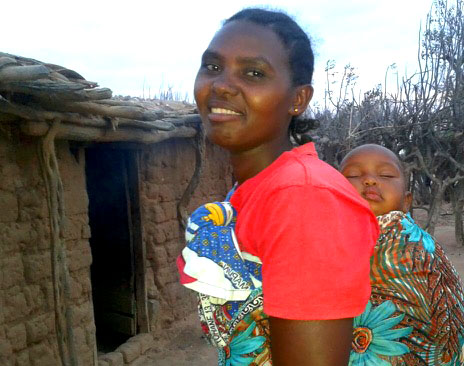Making life better...
Byadgi is the chili capital of Karnataka State with seasonal work for the women who go to the fields early in the morning to pick, dry, sort and pack the produce. This routinely forces a number of girls to drop out of school since they need to be at home to take care of their younger siblings. To help deal with this predicament, the CSST run makehift nurseries and daycare centers where they provide the tiny tots with basic education and well-balanced nutritious food. This arrangement helps older children, especially girls, to go back to school instead of baby sitting at home.
...by working with children and adults...
In this set of pictures you see children from the semi-urban areas and slums of Byadgi in Karnataka State, ranging from five to seventeen, many of them former child laborers and those who could not continue school. They are housed in Sneha Sadana Home for the Underprivileged Students founded and run by the Carmelite Sisters of St. Teresa (CSST), which guides them through their overall development, including education and career planning. They are lifted out of abject poverty and given the foundation for a promising future. There are at the moment about fifty children at this facility--six Catholic, two Muslim and the rest Hindu.
Hathimara is situated in a remote village in Pakur district in Jharkhand State. The people of this area are mainly Santal Tribals--illiterate, poor, and constantly struggling to stay alive. The region is plagued with water scarcity. Without a reliable source of water for irrigation, crops suffer, and the people of the region face starvation. There is a growing awareness among the people that education is crucial to combat poverty. The few schools, government and private, are far from the villages. The Carmel Hostel houses girls to help with this problem. There are over four hundred residents now in a facility that badly needs improvement and expansion. A multi-purpose hall where students can study, dine and have recreation as well as an underground water tank to harvest water are urgent needs.
...to improve health and education...
Bhalwa in the Jamui District of Bihar State is forested, hard to reach, and lacks basic amenities such as roads, electricity, running water, schools and hospitals. Malaria, typhoid and diarrhea are rampant. The people of the region are poor, illiterate farmers, completely dependent on rainfall for cultivation. CSST opened Carmel Balika Kalyan Sadan, a hostel for poor girls in 1993. About 30% of these girls are ophans from the local tribes. The facilities are basic. The children have no tables and chairs and do their studying sitting on the floor, and lacking electricity, they live in the dark and are unable to study at night. With more funds, the CSST hope to build suitable facilities for them as well invest in solar technology for heat and light.
Jeevanalayam, Home for the Homeless, is in Tadipatri in Andhra Pradesh. There are twenty-three destitute women in this refuge at present. The Home run by the CSST needs to expand its facilities to accommodate more of these wandering women who have no other shelter.
...in India and around the world.
Mount Carmel Girls’ School in Bungoma, Kenya caters to girls, both orphans and children of single parents who live in extended families. Polygamy is an accepted practice in this area, and HIV/AIDS is widely prevalent. Poor extended families cannot afford to give their children sufficient or nutritious food or to educate them. The CSST have set up a school and a boarding house for the girls. The site which needs 8 classrooms, 4 labs, 4 dormitories and furniture is in serious need of funds.
In these images you see the remote area of Singida, Tanzania, Dung’unyi is semi-arid and poor. Maize and sweet potato are cultivated if and when it rains. Removed from the mainstream, the only language spoken is the local dialect. There are no schools and health clinics. The challenges presented by this region, especially the high cost of construction due to the distance from supply centers, have deterred volunteers from undertaking basic developmental projects.


